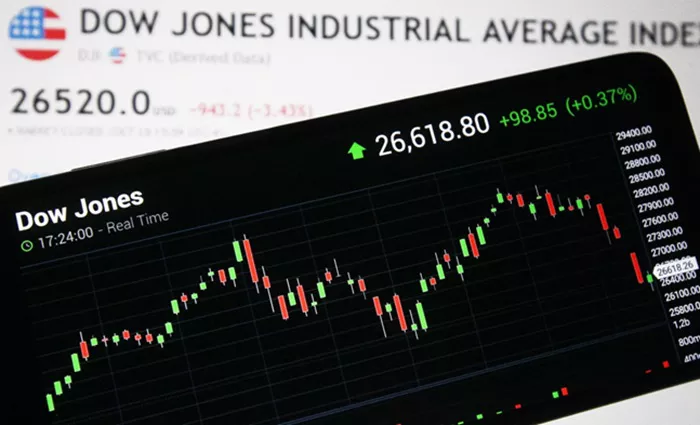The stock market saw an impressive milestone today as the Dow Jones Industrial Average (DJIA) surged to a new record high. However, in a surprising turn, Charles Schwab issued a sell signal, raising questions about the sustainability of this bullish trend. This article delves into the factors driving the Dow’s ascent, the rationale behind Schwab’s advisory, and what it means for investors.
Dow’s Record High: Factors at Play
The Dow’s record-breaking performance can be attributed to several key factors:
1. Economic Recovery: The U.S. economy has been on a recovery trajectory, bolstered by strong job growth and consumer spending. Recent data shows a significant uptick in employment numbers and retail sales, suggesting a robust post-pandemic rebound.
2. Corporate Earnings: Many blue-chip companies listed on the Dow have reported stellar earnings for the second quarter. Tech giants, financial institutions, and consumer goods companies have all posted profits that exceeded analysts’ expectations.
3. Monetary Policy: The Federal Reserve’s accommodative monetary policy, including low interest rates and continued bond-buying, has provided a favorable environment for equities. Investors remain optimistic that the Fed will maintain its supportive stance despite signs of inflation.
4. Market Sentiment: Investor sentiment has been buoyed by the anticipation of further fiscal stimulus and infrastructure spending. The Biden administration’s plans for significant infrastructure investment have created a positive outlook for sectors like construction, manufacturing, and technology.
See also: Dow Futures Rise After Trump Assassination Attempt; 4 Stocks In Buy Zones
Schwab’s Sell Signal: A Contrarian View
Despite the market euphoria, Charles Schwab’s issuance of a sell signal has raised eyebrows. Here’s why the brokerage firm is urging caution:
1. Valuation Concerns: Schwab analysts argue that the market is overheating, with stock valuations reaching levels that are hard to justify based on historical metrics. The price-to-earnings ratios for many stocks are at multi-decade highs, suggesting that the market may be overvalued.
2. Inflation Risks: Inflation concerns are at the forefront of Schwab’s advisory. Rising prices for goods and services could lead to higher input costs for companies, squeezing profit margins. There is also the risk that the Federal Reserve may be forced to tighten monetary policy sooner than expected, which could negatively impact the market.
3. Geopolitical Tensions: Ongoing geopolitical issues, such as trade tensions with China and instability in the Middle East, pose risks to the global economy. Schwab highlights that these uncertainties could trigger market volatility.
4. Technical Indicators: Technical analysis from Schwab suggests that the market may be due for a correction. Indicators such as the Relative Strength Index (RSI) and moving averages signal that the market is in overbought territory.
Investor Implications: Navigating the Market
For investors, Schwab’s sell signal may prompt a reevaluation of their portfolios. Here are some strategies to consider:
1. Diversification: Ensure that your portfolio is well-diversified across different asset classes and sectors. This can help mitigate risks associated with a potential market correction.
2. Quality Stocks: Focus on high-quality stocks with strong fundamentals. Companies with solid balance sheets, consistent earnings growth, and competitive advantages are likely to weather market volatility better.
3. Defensive Assets: Consider allocating a portion of your portfolio to defensive assets such as bonds, gold, or utilities. These can provide stability and reduce overall portfolio risk.
4. Stay Informed: Keep abreast of market developments and economic indicators. Being informed can help you make timely decisions and adjust your investment strategy as needed.
Conclusion
A Balancing Act
The Dow’s record high reflects the current optimism in the market, driven by economic recovery, strong corporate earnings, and supportive monetary policy. However, Charles Schwab’s sell signal serves as a reminder that caution is warranted. Investors should carefully consider the risks and ensure their portfolios are well-positioned to handle potential market volatility. Balancing optimism with prudence will be key to navigating the markets in the coming months.
Related Topics:

